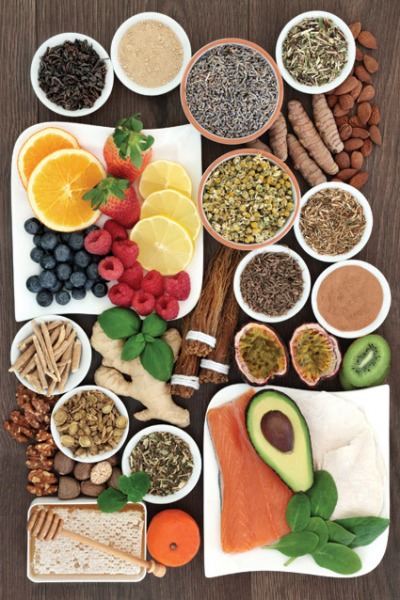
By Jonathan Evans
Herbal Information Specialist for the Herbarium
From the help coping with the ongoing pandemic to preparing for the holidays, there’s much to discuss in this month’s column.
Please don’t get anxious about Kava Kava
Since the pandemic hit earlier this year, the number of natural products that contain Kava (Piper methysticum) has increased dramatically. So have the phone calls when people read the warning label on the bottles. Ironic isn’t it? One of the great treatments for anxiety could increase people’s anxiety. Not the herb mind you, just people’s concerns. I wrote about this some time ago, but I think it is time to do it again. So, gather ‘round folks and let ol’ Uncle Jonny tell you the real story about Kava.
Quite a number of years ago, a German pharmaceutical company made a batch of Kava extract using the peels and aerial parts of the plants. This was a big mistake. Only the root should be used, not the peels or any aerial part of the plant, which contain hepatotoxic chemicals. Needless to say, some people who used this product became ill, and several died.
The European Union subsequently banned kava, and the United States issued a warning. Investigators, however found kava poisoning had never happened before or occurred since. Subsequently, the E.U. lifted its ban, but the U.S. left the warning in place.
So, legally I can tell you if you have a liver disease you may want to avoid kava. For the rest of us, there is no problem.
I hope this helps alleviate some of the concern and anxiety.
Another tool in the COVID-19 arsenal
I have written several articles about herbs and supplements for pandemic protection. As there has been some information updates since my last piece, I wanted to share that a recent study shows the essential oils of lemon (Citrus limonum) and Geranium (Pelargonium graveolens) offer protection against COVID-19, similar to the herbs Astragalus and Quercetin. Diffusing these oils in the home can offer another layer of safety, according to the study. The full article is available for study at HERBARIUM.
A reader asks the Herbarium
This month, the question deals with antibiotics and their side effects.
Dear Jonathan,
I have been on a course of antibiotics for a yeast infection. I am done with the antibiotics, but I feel awful, my digestion is off, I am suffering from diarrhea, and I think the infection is coming back. I really don’t want to go back on the antibiotics again. Is there anything you can suggest to help?
— Alice
Dear Alice,
There are several things we use for yeast overgrowths. We have two liquid formulas and a capsule formula that have shown to be effective. Some of the ingredients include Spilanthes (Spilanthes acmella), Usnea (Usnea spp.) Oregano (Origanum vulgare), Pau d’Arco (Tabebuia impetiginosa), Tea tree, (Melaleuca alternifolia), and Caprillic acid.
These supplements have very powerful antifungal, antiviral, antibacterial action. The other very important ingredient would be a probiotic containing multiple strains of lactobacillus and bifidobacterium in sufficient amounts to help repopulate your good gut flora as you kill off the yeast. Actually, it would have been a good idea to use a probiotic while you were on the medicine, to help with the side effects of antibiotics.
When I say a good probiotic, please understand I am not talking about the stuff you find at the drugstore, grocery store or advertised on television. Those products are a joke.
I also do not mean eating a jar of yogurt, no matter what Jamie Lee Curtis says.
These products do not have enough strains in the quantities you need. We have an excellent article available at HERBARIUM that details what probiotics do, and what to look for when purchasing these products.
— Jonathan
Help for holiday digestion
Thanksgiving approaches, and it is going to look very different than in years past I believe. It seems doubtful we will be having the usual large family gatherings around the table, but I may be wrong.
In any event, one thing that can be helpful for the traditional overeating and subsequent digestive problems might be to offer your family or guests digestive enzymes to help with the food overload, heartburn and such.
Something as simple as papaya, or pineapple after dinner would be very helpful. Papaya contains papain, pineapple contains bromelain, both very good for digesting protein. If fruit isn’t to your liking, there are formulas containing enzymes to help break down protein, fats, carbohydrates and vegetable matter.
I hope you all have a safe and happy Thanksgiving.
— Jonathan
Send questions on botanical remedies to: Natures Rx: Jonathan Evans at herbarium258@gmail.com, or by regular mail to: The Herbarium, 264 Exchange Street, Chicopee, MA 01013. If requesting additional info, include a self-addressed stamped envelope.